Infant Baptism or Believer’s Baptism: Which is Correct?
Infant baptism vs believer’s baptism (a.k.a., “adult baptism”): Which is correct? And why is baptism important anyway? Here’s what you need to know about Christian baptism.
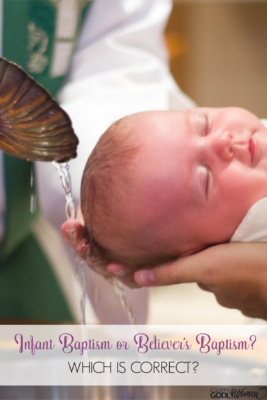 When my oldest son was born, my husband and I had a decision to make: Would we baptize him as an infant or wait?
When my oldest son was born, my husband and I had a decision to make: Would we baptize him as an infant or wait?
My husband was baptized as an infant in the Catholic Church we still attend today. I was baptized in 4th grade at the church my family happened to be attending at that time. Which one was correct?
Both Catholics and Protestants see baptism as very important, and yet the two groups differ on details such as when a person should be baptized, how a person should be baptized and what baptism does, exactly. Hopefully this post will shed some light on the various positions.
First, let’s start with the basics.
What is Baptism?
At its most basic, baptism is a practice common to all Christian churches that brings new members into the faith. It uses water and words in a special ceremony.
There also has to be the intent to baptize someone — kids “playing church” can’t accidentally baptize each other!
A person can be immersed (dunked all the way!) in water, or water can be sprinkled.
A Christian baptism invokes the Trinity with the words “I baptize you in the name of the Father and of the Son and of the Holy Spirit.”
Some baptisms also include the words, “…buried in the likeness of His death, raised in the likeness of His resurrection” to declare the new life in Christ.
Christening vs Baptism: What’s the Difference?
The terms baptism and christening are often used interchangeably, but there is a slight difference.
Baptism is the ceremony with water and words to admit someone (baby, child, or adult) into the Christian faith.
Christening is a naming ritual that isn’t often used anymore. Way back when, a child was baptized and given an official Christian name at the same time. Now, people usually just mean “baptism” even when they say “christening.”
In this post, I am talking only about baptism.
How Did Christian Baptism Begin?
Did Jesus Invent Baptism?
Before Jesus: Baptism was around before the beginnings of Christianity. It is not a Christian invention. Jesus himself was baptized by John the Baptist, probably in a Jewish purification ritual called a mikvah.
Jesus did command his followers, “Go, and make disciples of all nations, baptizing them in the name of the Father and of the Son and of the Holy Spirit” (Matthew 28:19).
So Jesus didn’t invent baptism, but He did command it and establish it as part of Christian practice.
After Jesus: Some Jewish-Christian communities began baptizing converts around the time Christianity began. The converts were first interrogated to make sure they believed in Jewish teachings. Then they were baptized naked (and males were circumcised!) in order to become fully accepted into the community. (Both these practices have changed, thank goodness!)
Is Infant Baptism in the Bible? How About Adult Baptism?
There is some question about whether or not the Bible mentions infant baptism. It does say that “households” were baptized (Acts 10 and 16; 1 Corinthians 1), but there is disagreement as to whether or not this included infants. It does not say that only adults were baptized.
The Bible does not explicitly mandate either adult baptism or infant baptism.
220 A.D.: The oldest explicit account of infant baptism we have today is by Tertullian around 220 A.D. This is about 120 years after the last book of the Bible was written, but Tertullian is one of the earliest writers to describe the early Christian church.
What Was Christian Baptism Like After Jesus?
In the early church, adult baptism was the norm because Christianity was so new that most people converted into it, rather than being born into it.
Adults were required to convert before they could be baptized. However, both infant baptism and adult baptism were practiced without conflict. Both methods were acceptable and people were pretty much free to choose.
Early Church Fathers: Not a single church father found infant baptism unlawful, though they all had their own opinion on when the “optimal” time for baptism. There was no serious controversy about when baptism should happen.
253 A.D.: The Council of Carthage condemned the practice of withholding baptism from infants until the eighth day, and infant baptism became the new norm. Infant baptism was practiced nearly universally until the 16th century.
416 A.D.: Infant baptism was made compulsory by Roman Law.
16th Century: During the Protestant Reformation, some Protestant groups began to question whether infant baptism was actually Biblical. Some groups re-baptized people; others began waiting till people were adults. Not all Protestants switched sides however. Some Protestant groups (including Lutherans, Presbyterians and Methodists) maintained the practice of infant baptism even till today.
Today: Christians practice both infant baptism and adult baptism. This is the same mix that existed in the early church, but not everyone gets along like they did in the early church. (When researching for this post, I found a TON of very heated, opinionated and hateful arguments. It was very annoying.)
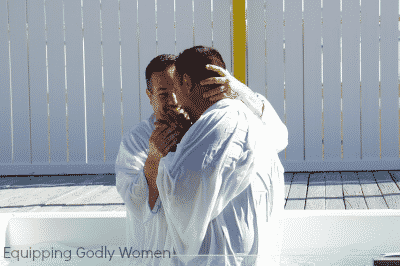
What is Adult Baptism (or Believer’s Baptism)?
Beliefs and practices vary between Protestant churches, and there is no “official” Protestant baptism belief. I’m sharing the practices of the Baptist church I grew up in, and comparing them with the Catholic baptism practices I’ve learned about.
Many Protestant church practice “adult baptism,” also called “believer’s baptism.” Adult baptism is for those old enough to make a conscious decision to be baptized and make their profession of faith.
This is sometimes called “adult baptism,” but it depends on the ability to make a profession of faith, not really on age. Kids as young as 7 are commonly baptized with believer’s baptism.
What is Infant Baptism?
The Catholic Church and many mainline Protestant churches, such as the Episcopal, Reformed, and Lutheran churches, practice infant baptism. Babies as young as a few days old are baptized, and godparents make the baptismal promises for the baby.
Many Catholics baptize their babies as soon as reasonably possible. They do this quickly because they believe that a baby’s salvation depends on baptism removing original sin.
Does Baptism Remove Original Sin?
First, what is original sin?
Original sin simply refers to our fallen human nature, and the tendency of humans to choose sin. Saying that a baby is born with original sin does not mean that the baby has committed a sin.
Catholics believe that baptism is the way to remove original sin from someone’s soul, regardless of age. They cite the following verses (italics added):
Peter replied, “Repent and be baptized, every one of you, in the name of Jesus Christ for the forgiveness of your sins. And you will receive the gift of the Holy Spirit. The promise is for you and your children and for all who are far off—for all whom the Lord our God will call. (Acts 2:38-39)
To those who were disobedient long ago when God waited patiently in the days of Noah while the ark was being built. In it only a few people, eight in all, were saved through water, and this water symbolizes baptism that now saves you also — not the removal of dirt from the body but the pledge of a clear conscience toward God. It saves you by the resurrection of Jesus Christ.” (1 Peter 3:20-21)
He saved us, not because of righteous things we had done, but because of his mercy. He saved us through the washing of rebirth and renewal by the Holy Spirit. (Titus 3:5)
We were therefore buried with him through baptism into death in order that, just as Christ was raised from the dead through the glory of the Father, we too may live a new life. (Romans 6:4)
Jesus answered, “Very truly I tell you, no one can enter the kingdom of God unless they are born of water and the Spirit.” (John 3:5)
The concept is also expressed in the Nicene Creed, which states, “I acknowledge one baptism for the remission [or forgiveness] of sins.”
Why Is Baptism Important for Infants?
Protestants will say that baptism should be a personal choice, but Catholics counter that with a couple arguments to support infant baptism.
First, waiting for baptism could have grave consequences.
Say your baby was sick and dying and you had a medicine that would cure him. Would you wait until your baby was old enough to choose the medicine? Or would you, as the parent, make the best choice for the child, considering the grave consequences? Baptism is viewed as healing a soul born into original sin.
What’s more, Catholics recognize that the child still has personal choice.
Even baptized babies can still grow up to be nonbelievers. Infant baptism isn’t forcing anyone to be a Christian. Baptism simply removes original sin while the baby is too young to choose. A child can grow up to sin all they want if they like.
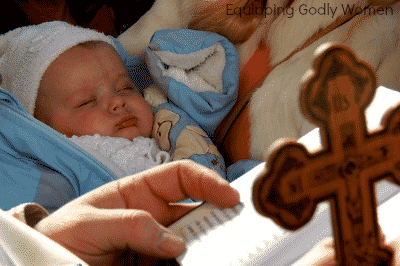
But the Bible Says People Have to Become Christian First!
Where? It’s true, the Bible gives several accounts of people who gave a profession of faith and then were baptized. But there is a difference between reporting what some people did, and giving instructions to people. The Bible isn’t an all-inclusive manual to Christianity.
And remember, Christianity was a brand new religion when the Bible was written, so more people were converting to it than were being born into it. As babies were born into Christian communities, new practices developed and were accepted. This is why we turn to church history to fill in the blanks.
Why Is Baptism Important for Adults?
People are baptized with adult baptism because they choose it as a symbol of faith — it is not to remove original sin. In Baptist and other Protestant churches, they’ve already made a decision to follow Jesus.
So if they are already Christians and don’t need baptism to remove original sin, why choose to be baptized at all?
- Baptism is important because the Bible commands it: “Repent and be baptized” (Acts 2:38).
- The purpose of baptism is to make a public profession of faith (though it doesn’t actually have to be public). This is important as an individual and communal declaration — “I am a Christian, in this community of Christians.”
They don’t do it because they believe that baptism has any power in itself.
- In Protestant baptism beliefs, baptism does not forgive original sin. (That happens prior, when a person repents and makes the conscious decision to follow Christ, or “accepts Jesus as personal Lord and Savior.”)
- Baptism is a rich symbol, but it’s just a symbol. It doesn’t necessarily “do” anything.
Interesting Fact: Martin Luther, leader of the Protestant Reformation, believed that baptism was more than a symbol. He believed that it offers forgiveness from sins and grants eternal salvation.
Why Is Infant Baptism Important for Catholics?
Infants are baptized because parents choose it. For Catholics, baptism is a means of salvation because it washes away the effects of original sin.
- By washing away original sin (and since babies are too young to commit personal sin), baptism guarantees salvation if a baby were to die young.
- The Bible commands baptism, and Catholics see no good reason to withhold the graces or to wait.
- Infants should be baptized as soon as possible, as their salvation depends on it.
Catholics don’t baptize someone as “just a symbol” — they believe that baptism has a real spiritual effect.
HOWEVER:
- While baptism guarantees salvation for infants, once the person reaches the age of reason, they must then consciously choose to follow Jesus. Otherwise, they can lose their salvation. (Baptism removes original sin, not personal sin committed later after knowing that something is wrong.)
- Similarly to how Protestants added baby dedications, Catholics added confirmation, in which a Catholic young person makes their official profession of faith.
What Is the Typical Baptism Age?
The typical baptism age for adult baptism is anywhere from the age of understanding (around 7 or 8) to any adult age. For believer’s baptism, you may be too young to be baptized, but you are never too old.
The typical Catholic baptism age is from just a few days old to any adult age, including on the deathbed. For Catholics, you are never too young or too old to be baptized.
Interesting Fact: At one point, many people began putting off baptism until they were on their deathbed. This was because the church believed that baptism washes away all mortal (serious) sin, and people didn’t want to risk getting baptized, committing a mortal sin, and then having to do penance afterwards. So they would wait.
Do You Have to Be Baptized to Go to Heaven, According to Protestants?
Protestants believe that you do not have to be baptized to go to heaven. They do see baptism as an important step in Christian life, for sure:
- Baptism is a part of following the Bible’s commands.
- Baptism is a public declaration of a fundamental belief.
- And baptism identifies you with a Christian faith community
But baptism is not necessary for salvation — you can choose whether or not to receive it.
Do You Have to Be Baptized to Go to Heaven, According to Catholics?
Catholics believe that baptism is a part of salvation, and a person must be baptized to go to heaven. (But keep reading!)
The Bible says that baptism is necessary for salvation, and Catholics take this very seriously.
But Catholics also believe:
- Martyrs are considered “baptized in blood” and have all their sins wiped clean at the moment they die (even if they were never baptized by water).
- If a person dies before they could be baptized, but they truly desired to be baptized, that’s enough for salvation (this is called “baptism by desire”).
- While infants are usually baptized by a priest or a deacon, anyone — even a non-Christian — could baptize a person, especially in an emergency situation, and it would still be considered valid.
How Many Times Can You Be Baptized?
Baptism should happen only once in a Christian’s life.
Infant baptism was not really controversial until the Reformation. Then the Anabaptists began re-baptizing people who had already been baptized as babies, saying that baptism must happen after the age of reason (“Anabaptist” means “baptize again“).
For Catholics, baptisms done in other Christian churches are still considered valid as long as they are done with water (immersion or sprinkling, it doesn’t matter) and with the words “in the name of the Father and of the Son and of the Holy Spirit.” Someone was baptized this way doesn’t need to be re-baptized if they convert to Catholicism.
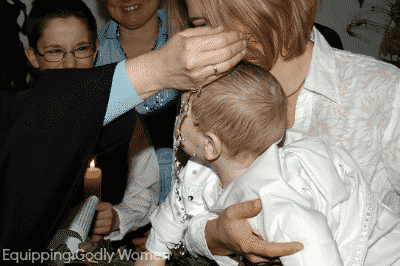
What are the Requirements for Adult Baptism?
In the Baptist church that I grew up in:
- People should be baptized of their own free will.
- They must be old enough to understand what baptism is and what it means.
- They must make a confession of faith.
- Classes may or may not be required.
A white robe is often provided, but is not necessary.
What Are the Requirements for Catholic Baptism?
In order for the Catholic Church to recognize a baptism as valid, there must be three things:
- Water
- The words ‘in the name of the Father and of the Son and of the Holy Spirit’ (or some version thereof, naming all three)
- The intent of baptizing.
Also, in most cases, you will also need at least one consenting parent or legal guardian, and reasonable assurance that the child will be raised Catholic.
Catholic godparents, special clothes, candles and oil are all customary as well, though not required.
What Is a Typical Believer’s Baptism Like?
Who: Anyone who believes and is old enough to want to be baptized. Believer’s baptisms are typically done by the pastor.
Where: Many churches have a baptismal font right behind the stage, which is accessed from behind. People also have the option of getting baptized in a river, pond, lake, etc., which sometimes happens at special church camps or events.
When: Some churches keep the water warm to baptize anyone who wants to come forward and “accept Jesus” at the end of the service on any given Sunday. Others will wait and have a baptismal service where they baptize several people at a time.
How:
- People are baptized by full immersion to symbolize Jesus’s death, burial and resurrection.
- They typically wear a robe with normal clothes underneath (and bring clothes to change into for afterwards!)
- The pastor will generally give a short introduction and the person will probably share their testimony.
- The pastor will ask the person some “Do you believe” type questions to make sure the person is a believing Christian.
- The pastor will dunk the person while saying “I now baptize you in the name of the Father, and of the Son and of the Holy Spirit.”
- Much applause and rejoicing from everyone watching!
- And yes, you can hold your nose! (I know; you were curious.)
For infants: In denominations that don’t baptize infants, there is often a baby dedication ceremony instead. Basically, the mother and father present the baby (or toddler) in front of the congregation and promise to raise the baby in the faith. In turn, the congregation promises to do everything in their power to help, and the pastor says a prayer that the child will grow up to know God.
What Is a Typical Infant Baptism Like?
Who: Anyone. Babies born into Catholic families are generally baptized as infants (from birth to the first few months of life). Children over 7 years and adults are baptized upon conversion and completion of education classes about the Catholic faith (RCIC or RCIA).
Where: At the baptismal font, usually in front of the church.
When: Typically on Sundays. Either during mass or after mass as part of a private ceremony for family and invited friends.
How:
- The parents and godparents state their intentions/promises for the child (to baptize them and raise them in the Catholic faith).
- The priest, parents and godparents make the sign of the cross on the baby.
- One or two Scripture passages are read.
- Prayers are said.
- The baby is baptized in the name of the Father, Son and Holy Spirit by immersion, pouring or sprinkling. (Any method is fine. Immersion is rare, but it isn’t unheard of!)
- Candles are lit.
- The baby is anointed with oil.
- The priest blesses the parents.
- The baptismal certificate is filled out and filed.
Unlike the Protestant practice, which is pretty informal and doesn’t take more than 5 min at most, the Catholic practice is generally longer and more formal.
You can find a detailed description here: Rite for the Baptism of One Child.
Information about the symbolism of the various parts here: The Symbols of Baptism: How Do They Work?
And a personal account of one baby’s Catholic baptism here: Blessings Abounded at Our Baby’s Baptism.
Thanks to those of you who were up late with me on Facebook last night filling me in on all the details!! 🙂
So What Did We Ultimately Decide?
Like I mentioned in the introduction, when our first son was born, my husband and I had a choice to make about infant baptism vs adult baptism: Would we baptize him in the Catholic Church or not?
Here’s what we decided.
First, we met with a priest to learn more about Catholic baptism. It was during this meeting that I first learned that the Catholic Church believes that baptism washes away sin. This was news to me! After about an hour in the church basement, they sent us home with a pamphlet.
Over the next few days, I poured over the pamphlet and the Scriptures. At first, I found plenty of verses that seemed to support my Baptist position on adult baptism. Then, I found quite a few verses that seemed to support my husband’s Catholic position on infant baptism. I wasn’t completely and utterly opposed, but I definitely wasn’t convinced.
I told my husband that I had some reservations about baptizing our son in the Catholic Church since I didn’t wholeheartedly agree with everything the Catholic Church teaches about what that meant. BUT I also said that I would let him make the decision as the spiritual leader of our family. Whatever he chose, I would support.
We didn’t end up baptizing our son in the Catholic Church.
Instead, one night my husband decided he couldn’t put it off any longer, we both woke our son up, and my husband baptized him right there on a towel on our living room floor! (Yes, you can do that!)
This was the absolute perfect solution for us. My husband and I were (and still are) in complete agreement about our decision, and so far none of the priests we’ve mentioned it to have had any problems with it. We baptized our second and third children the same way.
Later, so that their baptisms would be officially recorded in the church, all three were baptized in our Catholic church in a beautiful, private ceremony for just our family. These were conditional baptisms, which is what the Catholic church does for people whose previous baptism that is a little unsure (this is not considered “re-baptizing” — remember, once is enough!).
Conclusion
Personally, I think if the early Christian church can get along–we should be able to too. While I don’t see anything wrong with being baptized as an adult, I also don’t see any good reason to wait either.
I’d love to hear your thoughts though! Leave them in the comments section below!
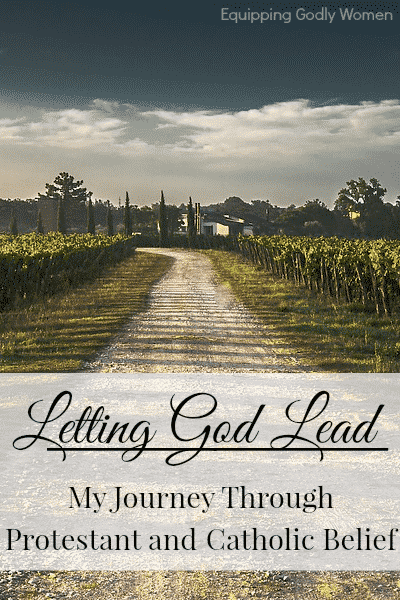
This is post 9 in my series Letting God Lead: My Journey Through Protestant and Catholic Beliefs. While you can read this post by itself, I encourage you to check out the rest of the series as well. Find all the posts plus additional resources here, or read individual posts from this list below.
The Day I Realized My Religion Got it Wrong
10 Common Catholic Church Myths that Critics Believe
Is the Eucharist Really Just a Symbol?
Who has the Ultimate Authority? A Biblical Look at Sola Scriptura
A Brief Look at the History of Christianity
What All Christians Should Know About Priests, the Pope and Confession
What Do Catholics Really Believe About Mary, Saints and Statues?
Infant Baptism or Believer’s Baptism? Which is Correct?
What is Purgatory? What are Indulgences?
Why Do Catholics….? Honest Answers to Your Burning Questions
Protestant and Catholic Beliefs Series Conclusion
Resources and Further Reading
I’m not asking you to believe because I say so. Please DON’T take my word for it! The purpose of this series is only to share what I’ve learned on my journey in order to inspire you to begin a journey of your own. Here are a few helpful resources to get you started.
*This post contains affiliate links, which means if you make a purchase, I may make a small commission at no additional cost to you. Thank you!
Catechism of the Catholic Church
Christian History Made Easy by Timothy Paul Jones, PhD
http://www.aboutcatholics.com/beliefs/a-guide-to-catholic-baptism/
http://www.beliefnet.com/Faiths/Catholic/2004/04/What-To-Know-Before-Your-Babys-Catholic-Baptism
http://www.catholic.com/documents/how-to-become-a-catholic
http://www.catholic.com/tracts/baptism-immersion-only
http://www.catholic.com/tracts/infant-baptism
http://catholicbridge.com/catholic/infant_baptism.php
http://www.churchhistory101.com/feedback/water-baptism.php
http://www.gotquestions.org/infant-baptism.html
http://www.gty.org/resources/sermons/80-369/Is-Infant-Baptism-Biblical

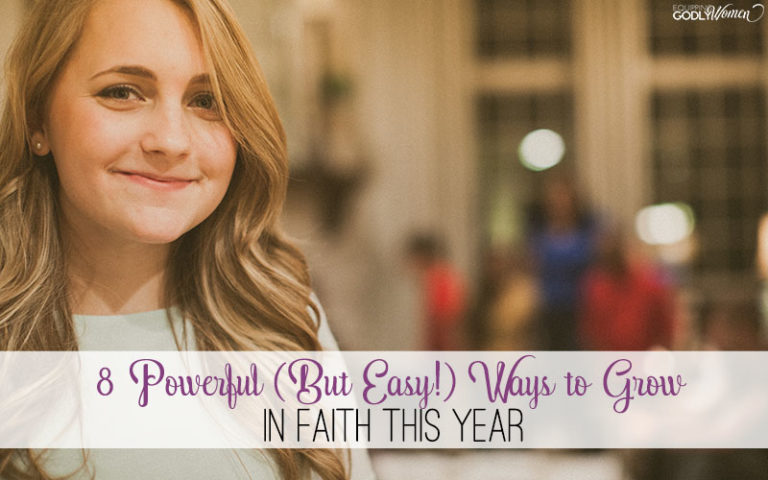

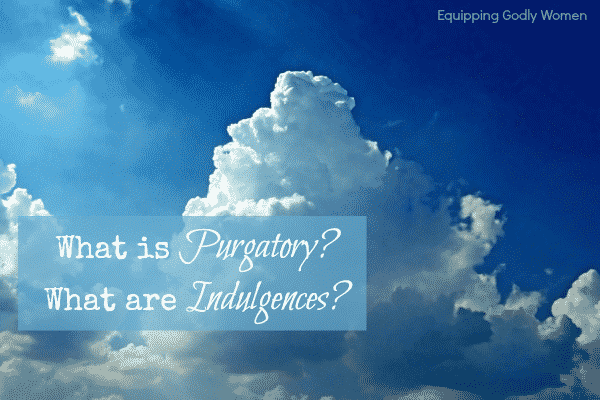

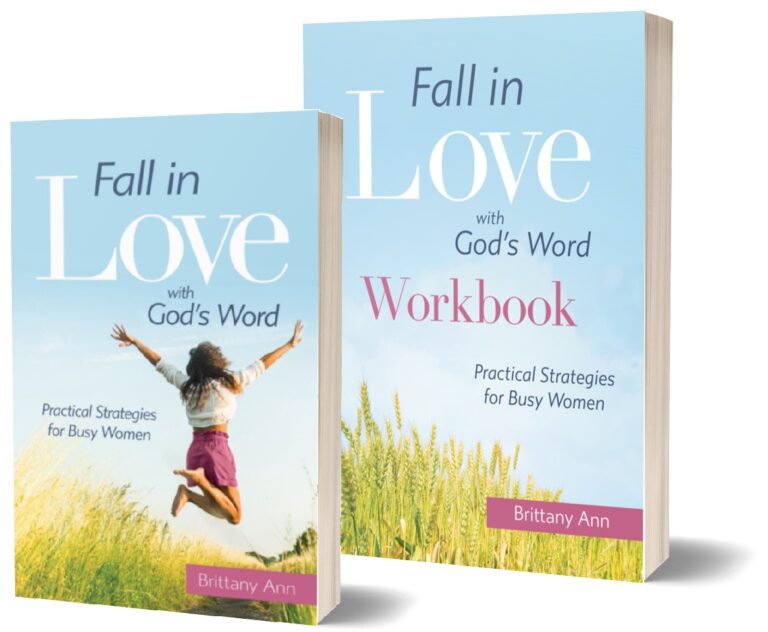
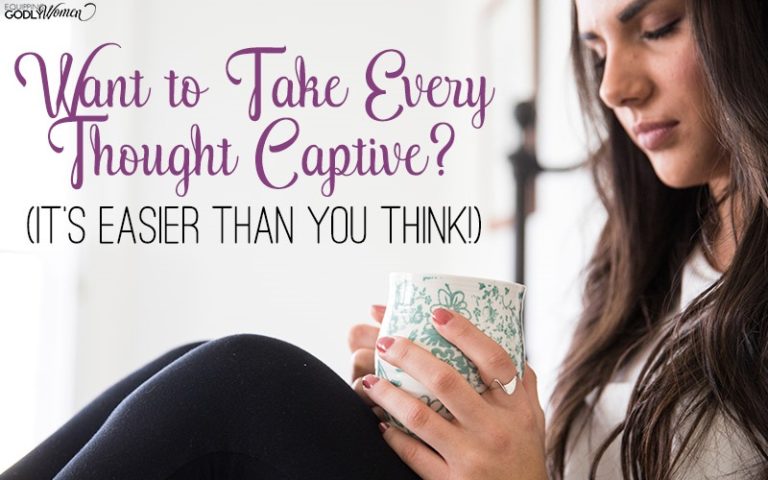
What an amazing way to baptize your son. That is what it’s all about, when the holy spirit just guides you to making a decision such as that. Amen!
I wouldn’t recommend it to everyone–there definitely are benefits to having a whole ceremony with the church–but it really was what was best with us. And it makes a cool story!
Interesting stuff. However, I must say that according to the church anyone can do a baptism only in cases of necessity such as impending death.
1256 The ordinary ministers of Baptism are the bishop and priest and, in the Latin Church, also the deacon. In case of necessity, anyone, even a non-baptized person, with the required intention, can baptize, by using the Trinitarian baptismal formula. The intention required is to will to do what the Church does when she baptizes. The Church finds the reason for this possibility in the universal saving will of God and the necessity of Baptism for salvation.
Yep! We found that out after I published this article, lol. Working to remedy that soon!
Wow, this was an incredibly thorough and well researched post, free of rants and judgement. You did a great job of comparing the positions, adding historical facts and beliefs and presenting your story! I was raised in a reformed presbyterian church that believes in infant baptism. I was baptized as an infant and so was my husband (from the same denomination). We met and married in the same church. When our daughters were born, we had them baptized as infants there because we were members, even though we were then leaning toward believer baptism. He and I were both baptized a second time as adults and made a public profession of faith and I hope our daughters do the same some day. Although I don’t believe baptism is necessary once (let alone twice) for salvation, since it’s a command and Jesus did it, I think we ought to also. I DON’T think it’s something Christians should fight about though, I totally agree with you on that! Thanks for sharing, I’m looking forward to reading more of your posts!
Thanks, I try 🙂 The Internet is already pretty saturated with hateful posts; I couldn’t see adding another (and that’s totally not my style 🙂 )
I just came across your post. I completely support the decisions of anyone choosing to bring their child up with a religious background. It was a great compromise that the two of you came up with. I myself was raised Catholic and also never completely agreed with everything that I was taught. But I think that is ok. I feel it’s most important to be a good, generous, kind person. The truth is, we really don’t know if there is a right and wrong religion, and won’t know until we have the chance to ask for ourselves. The best we can do, is the best we can. Ultimately, no one will be standing there defending our actions, except ourselves.
You’re right, we won’t know for 100% sure until after we die, but that doesn’t mean there isn’t a right/wrong at all. Being a good person isn’t enough if you have everything else wrong…
Brittany, this is a well-written article, and I liked that the two sides you present are laid out in detail. I don’t agree with the Catholic view that infant baptism removes original sin (even though I suspect this is the view in some Protestant denominations too), but, just to share my experience, I’ve been on the fence in regard to believer’s or infant baptism for a long time. I grew up Baptist, and the Baptists can say with some reason that there aren’t really any definite instances in Scripture of infant baptism in the New Testament church and that most Scriptural commands regarding baptism are coupled with additional instructions such as “Repent!” that would indicate conscious decision-making on the part of the person being baptized. Those two facts point away from infant baptism. On the other hand, I’m now a member of a theologically conservative Presbyterian church, and this type of Presbyterian church ties baptism in not simply with the New Testament but also with the Old. It argues that baptism is similar to Old Testament circumcision, an outward sign of a covenant that God has established with His people. I’ve not studied infant baptism in detail, but it does carry weight with me that almost all major strands of Christianity in history (Protestant, Catholic and Orthodox) in their studies of Scripture have ultimately decided to at least permit infant baptism. For me, I believe that baptism is commanded in the New Testament one way or the other, and I’ve already been baptized. Should my wife and I be blessed with children, I guess I’ll then have to make a more firm decision on whether I still adhere to believer’s baptism as I did growing up or whether I fully shift to the sort of infant baptism practiced in the church I attend.
I completely understand your perspective, being raised Baptist myself too! And I can definitely see logical arguments on both sides. I have heard the NT circumcision debate too, but decided not to include it just because I see too many loopholes in that too. I haven’t really researched that argument enough to be able to properly defend it or know if it’s true.
Either way, I figure with this, neither one is wrong, and better safe than sorry!
Brittany, Thank you for sharing. Your post is insightful, loving and unbiased. I was baptized as a child but committed as a believer baptism in my new church. I love seeing the different viewpoints and beliefs of a group that ultimately is all working to be more like Jesus. Thank you for sharing, hopefully this will shed some love and grace on our differences.
That’s my hope too. Not only with just this post, but with this entire Catholic/Protestant series. I don’t care which side people take, or even if they take a side at all (I haven’t)– I just want people to be informed in whatever they do decide. It’s been a lot of fun, and we’ve all been learning a TON!
I don’t understand how you can stay neutral between Catholicism and Protestantism. I love how much thought and research you’re pouring into searching for the Truth, but at a certain point, only one faith can be correct, right? Catholicism is an all or nothing, either it truly is the fullness of Christ’s Truth, or it’s all a lie. I truly do admire your love for Christ and just thought I’d leave my two cents for what it’s worth. May God continue to bless your search for His Truth 🙂
Well, not necessarily. How do we know that ANY of them are 100% right? I would be more inclined to believe that all of the denominations vary from 20-99% right — (those numbers are completely made up) — because can we ever be 100% sure that any denomination has everything all the way right. And then, when trying to figure out which is the MOST accurate–well, I can’t really know until I thoroughly research. Maybe Catholicism has some belief I haven’t uncovered yet that is totally, completely off? I won’t know til I research more.
And I wouldn’t agree that just because something isn’t 100% correct, it’s all a lie. It depends on which part is correct. If it’s just some tiny detail the Catholic Church got wrong, that won’t make a difference. If it’s a core belief, then that’s a problem!
I think an important part to consider is the fact that God can neither deceive nor be deceived, And He would not leave us floundering so much , in a 20-99% margin 🙂 He said he would be with us.
As for core beliefs, only one church has held the same beliefs since the time of Christ and the apostles. And has survived despite the frailty of man. And as you have found, so many Truths from the early church fathers and their practices., are the same truths the Catholic Church teaches today.
I don’t think infant/believer baptisms are one of these absolutes and totally agree that we should get along 🙂
But I do ask you to consider your first question about the protest against the church founded by by Christ, taught to the apostles, who then carried on the faith and works through the inspiration and guidance of the Holy Spirit. The protesters can’t all hold all the truth, and contradict each other. So then I ask where Then is the fullness of truth? And this can’t include “personal ” agreement or disagreement because then it is just that.. guided by person
I don’t mean that God is responsible for the 20-99% margin. I just mean that I think God would allow a slight margin for error without bothering to come down and fix it, and I’m currently trying to decide which set of beliefs is the most accurate. Catholics say that their beliefs are the same, but are they? (hypothetical question) The undeniable truth is that being Catholic today and being a believer in the first century is never going to look the same. Adaptations had to be made. That’s not a bad thing. Just something to sort out. How much have we all changed? Who is most accurate? That’s a tricky question.
I have a question. When Jesus was on the earth did He not create a church or did He create a religion? If He created a church that still existed today wouldn’t that church be 100% correct?
Um… I’d say that’s more a matter of semantics, and if we were getting super technical, he didn’t technically create either. Instead, he taught his closest followers (the apostles), who turned around and taught others, who turned around and taught others. And it wasn’t long before they thought it best to organize themselves into a church and start writing things down (the Bible) so that they could better keep the religion from error. After all, it was all word of mouth in those days, and the people were so far spread with limited communication, so it would be very easy for messages to get lost in translation.
(They weren’t – we have very early copies of the Bible that confirm that our Bible today is correct, so no worries there. But part of that is because the church organized so early).
As to whether or not a church would be 100% correct, the Catholic Church believes that this is the case and that they are it. They believe that, in the same way God was able to divinely inspire the writing of the Bible, to make sure that only the right things were recorded, that He also divinely protected the church from doctrinal error (not ALL error – they are humans. But from *doctrinal* error).
Personally, I do believe there *could* be one denomination that has it 100% right. It is possible. BUT in order for me to know that a church is 100% right, I’d have to know 100% myself in order to be able to judge that. And I just don’t think it’s practically possible for me, as a human, to be able to declare something 100%. I can know a lot. I can clearly see that some churches are closer than others. But for me (or any of us) as humans to be able to say with 100% certainty that a church is 100% correct? That just seems prideful to me. As though we know everything.
So I typically just take the angle that we’re all off a bit somewhere, and we can ALL stand to learn and grow. And the more we do that together – by discussing our differences – the more we can ALL learn and grow closer to the truth, whatever that is.
Personally, my theology runs fairly Catholic these days, but culturally, I’m definitely non-denominational. It’s a weird mix. So I know *I’m* not 100% correct! lol. But I’m growing and learning every day.
Sorry, that’s a long answer!
You’re right. No one can know everything about God except for Him. We should just try to learn as much as we can in this life. Thank you for the response. I had another question about the Pope. What role does He play in Catholicism? I know he is the leader, other than God, of course, but how does he “make the rules”, or does he preach doctrine instead of making it?
I think this was very well put together. It was kind of fun watching the posts on FB last night. I’m a cradle Catholic and I stand by the belief of the Catholic Church. I learned something new about the protestant beliefs. Thank you for sharing! God bless you on your journey, HOME!! 😉
I know. I was really hoping at least one person would respond, and then it turned into a whole huge discussion. Very fun and informative! Thanks for helping!!
This was a very well researched post. I don’t agree with infant Baptism though based on the fact that it is an outward expression of your inwards belief and acceptance of Jesus Christ as your Lord and Savior. Thank you for sharing though, I love learning more and seeing both sides. 🙂
So, serious question. On what basis do you believe “the fact that it is an outward expression of your inwards belief and acceptance of Jesus Christ as your Lord and Savior”? I was raised to believe this exact same thing too, but then when I started researching (this and several other things), I realized that the Bible never actually says that baptism is an outward expression of an inward condition. This whole time, I believed that 100% because I had been taught it, but I couldn’t find any basis in the Bible. If you know of a verse, I’d love to hear it! 🙂
Laura,
I appreciate your polite comment but the reason for your not believing in Infant Baptism has no basis in either the Bible or the early Church tradition.
You wrote: “I don’t agree with infant Baptism though based on the fact that it is an outward expression of your inwards belief and acceptance of Jesus Christ as your Lord and Savior.”
Neither of your two points “[baptism] is an outward sign of your inwards belief” or “acceptance of Jesus Christ as your Lord and Savior” are in the Bible. Neither can be found in the early Christian faith.
Both would be excellent reasons for an unbaptized person to be baptized. Both inwards belief and acceptance of Jesus Christ are excellent for every Christian to have. Requirements for baptism however, not biblical or traditional in any way.
The two phrases are an example of how ministers continue to splinter Christianity into thousands of little groups, especially non-denominational ministers who want to fill their seats and their stomachs.
I don’t think that either infant bapism or believers baptism is absolutely correct and the only right way. It really depends on the situation and it’s definitely not something Christians should be fighting about.
What does it mean that your husband is the spiritual leader of your home? (My parents are both Catholic so I’m not familiar with the concept.)
Does that mean that your kids only go to a Catholic church on Sundays or do you switch Baptist/Catholic? Could that work if you were still a devout Baptist and if you strongly agreed with all of the Baptist teachings?
p.s. Congratulations! Whishing you a healthy and easy pregnancy 🙂
Hi, Sara (sorry for the long delay in response!) The concept of the husband being the spiritual leader of the home is not a Protestant/Catholic one, bt a very traditional Christian beieve. I tried to find a good article, but couldn’t find anything really good.
The belief is based off of Ephesians 5:21-33, which includes: “For the husband is the head of the wife as Christ is the head of the church, his body, of which he is the Savior. Now as the church submits to Christ, so also wives should submit to their husbands in everything.”
In traditional Christian belief, this does NOT mean that the husband is the supreme ruler of the home and can do whatever he wants while the wife meekly submits and has no say. Instead, it is taken to mean that the husband is responsible for the spiritual state of his family as the guider, overseer or ultimate decision maker, if it comes to that.
In our family (we’re fairly traditional without being terribly old fashioned), it means that my husband asks for and values my opinion on things, but when we can’t come to an agreement, I generally let him lead, since when we reach Heaven someday, he will be responsible for our family.
To answer your second question: we go to Mass every Sunday and my children go to Catholic school. I was raised Baptist, but I never actually considered myself to be any denomination, just “Christian.” I’ve always told my husband that I didn’t care where we went to church–Protestant or Catholic–or long as they taught the essentials (Trinity, Jesus born, died rose again, possibility of Heaven someday) and the congregation wasn’t dead. I wanted someplace with a “go out and serve” focus.
While I haven’t always agreed with every single thing the Catholic Church teaches, to me, it’s just the smaller details I’ve had a problem with. They still teach the essentials. And it helps that they have a great school and a missions focus. It’s not necessarily my first choice 🙂 but it’s what is truly best for my family as a whole for a lot of reasons.
(And for the record, my husband did come to a nondenominational church with me for a while)
And thank you!!!!
I’ve heard that verse so many times, but never really heard of it in practice like in your situation. I guess a husband who is a “real” Christian would never misuse that right anyway so the feminist part of me can relax 😀
It’s interesting that Paul wrote about this and it is now confirmed in practise centuries later. http://en.wikipedia.org/wiki/Church_attendance
Just check the “influence of parents” chart. I found it really interesting how the father’s church attendance influences the children much more then the mother’s.
I have another question: do your kids have godparents, since they were baptized at home?
That chart is so interesting! So kids do better when the mother ISN’T religious? weird! I’d love to see a chart where they break it down further by gender. For example, in my family, my mother was very dedicated, and now so am I. My dad attended but wasn’t so “into” it, and both of my brothers are the same way.
And no, they don’t have godparents. But the person we had discussed naming them would NOT be a good choice any longer, so… dodged that bullet?
I was surprised too, especially because most people I know who go to church grew up in families where both parents attended regularly.
Although some people feel like their parents pushed them too much so later in life they don’t want anything to do with church. Maybe that’s part of the reason.
It would be interesting to see a more detailed description!
I don’t know. I love my godparents 😀
But your kids will need godparents for Confirmation (if they’ll go) so then they can choose someone for that role.
That makes sense.
I don’t have godparents, so it was never a concern for me, but yes, they’ll probably get them at confirmation. That’s a good idea.
Am a catholic christian and this is like a general rule,Husband is not only the spiritual but overall leader of the Family.
The christianic ministry is Male from the apostles to now(only Men as priests)The Catholic church regards Marriage as a sacament.and while both Man and woman jointly make decisions,
The husband takes overall responsibility .Its Biblical too.1 cor 11:13 ,7.
Brittany,
Another great post! Congratulations on your good news!
Just a couple points to add and clarify.
First, with Baptism of Desire – it’s not just the person chose Baptism but hadn’t been given the opportunity yet. It also covers those who would have chosen baptism if they were fully aware of it’s importance. As I’ve said before, God has bound Himself to the Sacraments, but He is not bound BY the Sacraments.
Second, the most common time for non-infant baptism is Easter, especially the Easter Vigil Mass. The type of baptism (trickling of water, immersion of just the head, full immersion) depends on the parish. Some parishes have baptismal fonts which allow for full immersion, while others only allow water to be poured over the head.
Third, the Sacrament of Confirmation is not something that was “added” but rather was separated. Originally, people were baptized and confirmed at the same time. But after awhile this became impractical because bishops could not be at every baptism. They would come later and perform the Sacrament of Confirmation.
It wasn’t until Pope St. Pius X that the current order of baptism, first communion and confirmation was established. In the late 1900s (about the time of Vatican II) priests began performing Confirmation because most RCIA candidates were being baptized and confirmed at Easter Vigil. The bishops couldn’t be at every parish on the same day, so priests began accepting more responsibility for the Sacrament on their behalf.
Lastly, the Church doesn’t teach a person doesn’t have to be re-baptized. The teaching is a person CAN’T be re-baptized. If you’ve already had one valid baptism, a second is both unnecessary and a sin against the Holy Spirit. By seeking a second baptism you’re saying the first was somehow invalid or insufficient.
Re: “It also covers those who would have chosen baptism if they were fully aware of it’s importance.” I had not heard that!
I don’t know much about confirmation (it didn’t make the cut for this series 🙂 ) but I plan on researching it further later. (especially before my children reach that point in school)
Good to know. I know the priest and I just talked about conditional baptism yesterday, and he made it clear that it assumes the first baptism was valid, but “just in case.”
Thanks for all your input throughout this series! I haven’t replied to all your comments bc there just isn’t usually much left to say! lol 🙂
Very informative post and congratulations!!!! 🙂
Thanks, Nicole!
Hi Brittany! I am a Catholic covert of 5 years as of this Easter. Truly by God’s grace have I found my way home! I just wanted to express my concern for your Catholic husband baptizing your children if there was no imminent fear of death and for the priests to not have educated you in reporting it and having the other ceremonies of the rite supplied. As a Catholic you can’t just baptize your child in your living room on a towel on a whim. Sacraments are holy and should not be entered into lightly. I agree with Margo. Jesus didn’t leave us with 40,000 plus truths. There is only one truth and may the Holy Spirit guide you to it! God bless you!
Thanks for your concern. We have spoken with the priest and are discussing options further. Thank you 🙂